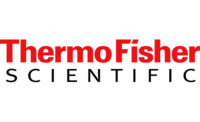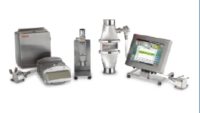Thermo Fisher Scientific Inc. is enabling analytical testing laboratories across a variety of sectors, including food, environmental, industrial, and pharma, to now meet their ever-increasing efficiency and productivity needs with a collection of new gas chromatography (GC) and GC-mass spectrometry (GC-MS) instruments offering innovative hardware and software updates.
The GC/GC-MS instrument portfolio, including the new Thermo Scientific TRACE 1600 Series Gas Chromatograph, Thermo Scientific AI/AS 1610 Liquid Autosampler, Thermo Scientific ISQ 7610 Single Quadrupole GC-MS, and Thermo Scientific TSQ 9610 Triple Quadrupole GC-MS/MS, now features technological advances that enhance usability and productivity.
"We designed this portfolio of GC/GC-MS instruments with the customer experience in mind, gathering feedback from customers throughout the development process," said Fabrizio Moltoni, vice president and general manager, applied analytical technologies, chromatography, and mass spectrometry, Thermo Fisher Scientific. "Our portfolio is continuously evolving to help our customers overcome new challenges, simplify operations, allow for easy compliance and reduce waste. These new instruments bring these efforts to fruition by helping laboratories avoid unplanned downtime and easy adoption with intuitive technology."
Features of the new Thermo Scientific GC/GC-MS instruments include:
- Unique GC modularity and NeverVent technologies that enable increased instrument uptime by accelerating maintenance operations through user-exchangeable injectors and detectors modules, and the ability to remove MS ion source, filaments and analytical column without breaking the vacuum.
- Wider high-resolution multi-function touch screen, tool-free column connection
- Illuminated GC oven and autosampler syringe compartment
- Support from how-to videos directly on the GC touch screen for quick familiarization and adoption
- Consistent sensitivity and extended linear dynamic range of the new MS detector that enable methods consolidation for maximized sample throughput—a critical need for analytical laboratories performing a high volume of tests.
Source: Thermo Scientific




Report Abusive Comment